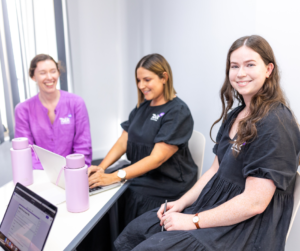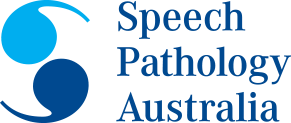Speech pathology is a rewarding career that helps people overcome communication challenges, enabling them to succeed in various aspects of life. Ensuring high-quality care in this field is essential, and one of the ways to achieve this is through professional self-regulation. But what does professional self-regulation mean, and how does it impact the work of speech pathologists? In this blog, we will explore the various aspects of self-regulation in speech pathology, including ethical guidelines, continuing education, peer review, professional standards, and quality assurance.
What is Professional Self-Regulation?
Professional self-regulation involves processes and practices that professionals in a given field use to govern themselves, ensuring they follow high standards of practice, ethics, and skill. In speech pathology, self-regulation means committing to continuous improvement, accountability, and adherence to established guidelines and standards. This approach helps speech pathologists provide the best possible care to their clients, maintaining trust and integrity in the profession.
Ethical Guidelines
Ethical guidelines form the cornerstone of professional self-regulation in speech pathology. These guidelines provide a framework for making decisions that prioritize the well-being of clients and uphold the integrity of the profession.
1. Client Welfare: First and foremost, speech pathologists must always act in the best interest of their clients. This involves getting informed consent, maintaining confidentiality, and providing services based on the best available evidence.
2. Professional Competence: Speech pathologists must maintain high levels of competence through ongoing education and training. This ensures they have the latest knowledge and skills to provide effective therapy.
3. Honesty and Integrity: Honesty and integrity are fundamental to the relationship between speech pathologists and their clients. Practitioners must communicate clearly, avoid conflicts of interest, and represent their qualifications and services accurately.
Ethical guidelines not only protect clients but also help speech pathologists navigate complex situations, ensuring their decisions align with professional standards.
Continuing Education
The field of speech pathology constantly evolves, with new research and techniques emerging regularly. To stay current and provide the best care, speech pathologists engage in continuing education.
1. Lifelong Learning: Speech pathologists commit to lifelong learning, attending workshops, seminars, and conferences to keep their knowledge up-to-date. This ongoing education helps them stay informed about the latest research, methods, and best practices in the field.
2. Advanced Certifications: Pursuing advanced certifications in specialised areas of speech pathology allows practitioners to deepen their expertise and offer more comprehensive services to their clients. This specialisation can include areas such as Auslan (Australian Sign Language), feeding therapy or AAC.
3. Online Courses and Webinars: The availability of online courses and webinars makes it easier for speech pathologists to access continuing education resources. These platforms provide flexible learning opportunities that fit into busy professional schedules.
By prioritising continuing education, speech pathologists ensure they have the most effective tools and knowledge to support their clients’ communication needs.
Peer Review
Peer review is a critical component of professional self-regulation, providing speech pathologists with valuable feedback and opportunities for growth.
1. Collaborative Learning: Participating in peer review allows speech pathologists to learn from one another, sharing insights and strategies that can enhance their practice. This collaborative approach fosters a culture of continuous improvement.
2. Constructive Feedback: Receiving constructive feedback from peers helps speech pathologists identify areas for development and refine their skills. This process encourages self-reflection and professional growth.
3. Case Study Discussions: Discussing case studies with peers provides a platform for speech pathologists to explore different approaches to therapy, learn from complex cases, and apply new techniques in their practice.
Peer review not only enhances individual competence but also contributes to the overall advancement of the field, promoting a collective commitment to high standards of care.
Professional Standards
Adhering to professional standards is essential for maintaining consistency and quality in speech pathology services.
1. Established Guidelines: Professional standards are based on established guidelines developed by our professional organisation, Speech Pathology Australia. These guidelines outline best practices for assessment, diagnosis, and treatment in speech pathology.
2. Competency Frameworks: Competency frameworks define the knowledge, skills, and behaviors expected of speech pathologists at different stages of their careers. These frameworks guide practitioners in their professional development and ensure they meet the required standards of practice.
3. Standardised Assessments: Using standardised assessments ensures that speech pathologists apply consistent and reliable methods when evaluating and diagnosing communication disorders. This standardisation enhances the accuracy and validity of their work.
By adhering to professional standards, speech pathologists provide high-quality, evidence-based care that meets the needs of their clients and upholds the reputation of the profession.
Quality Assurance
Quality assurance processes are vital for ensuring that speech pathology services meet the highest standards of care.
1. Regular Audits: Conducting regular audits of clinical practices and administrative procedures helps identify areas for improvement and ensures compliance with professional standards. These audits can be conducted internally or by external bodies for example NDIS.
2. Client Feedback: Gathering feedback from clients and their families provides valuable insights into the effectiveness of therapy and areas for enhancement. This feedback is used to refine services and improve client satisfaction.
3. Outcome Measurement: Measuring client outcomes is essential for evaluating the effectiveness of speech pathology interventions. By tracking progress and assessing the impact of therapy, speech pathologists can make data-driven decisions to optimise treatment plans.
4. Continuous Improvement: Quality assurance is an ongoing process that involves regular review and refinement of practices. Speech pathologists are committed to continuous improvement, ensuring their services evolve to meet the changing needs of their clients.
Through robust quality assurance processes, speech pathologists maintain high standards of care, ensuring their clients receive effective and reliable services.
Conclusion
Professional self-regulation in speech pathology involves ethical guidelines, continuing education, peer review, professional standards, and quality assurance. By following these principles, speech pathologists ensure they provide the highest quality of care to their clients, fostering trust and integrity in the profession.
At TalkHQ, we commit to upholding these standards, empowering our speech pathologists to deliver exceptional care and support to our clients. Through a commitment to professional self-regulation, we help children overcome communication challenges and succeed in school and life.
Professional self-regulation is not just about maintaining standards; it’s about a continuous journey of growth, learning, and improvement. By embracing these practices, speech pathologists can confidently navigate their careers, providing the best possible outcomes for their clients and making a meaningful impact in their lives.
Find more blogs here on our website







